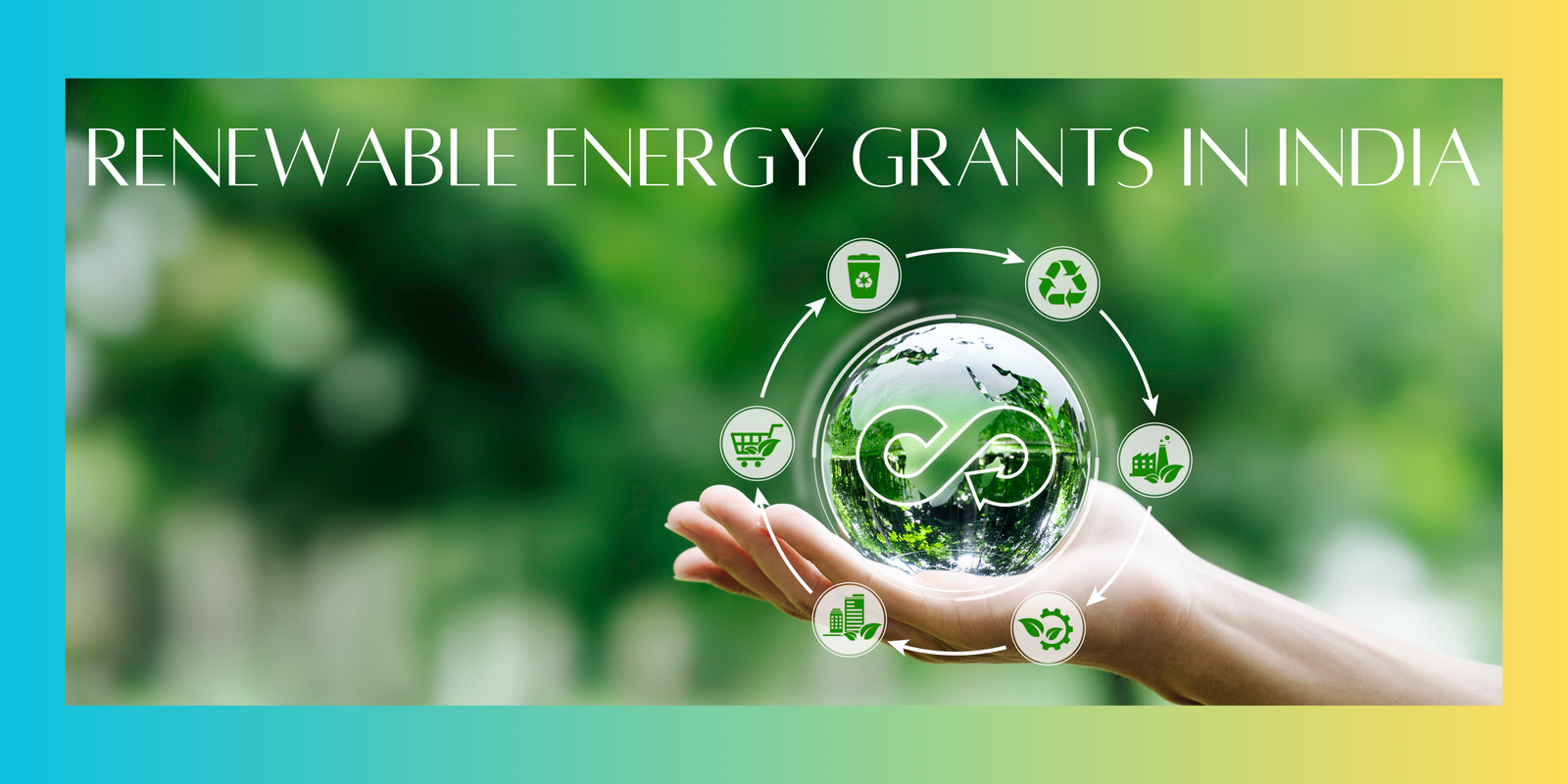Renewable Energy Grants in India: Introduction
Embarking on a green energy project in India? You’re not alone! The Indian government actively promotes clean energy initiatives through a multitude of grant programs. These grants offer valuable financial aid to individuals, businesses, and organizations undertaking renewable energy projects.
This blog post serves as a one-stop guide to understanding green energy grants in India. We’ll explore various grant programs catering to distinct renewable energy sources like solar, wind, biomass, and geothermal. We’ll also delve into the eligibility criteria, application processes, and crucial details for each grant program.
Types of Green Energy Grants in India
The Indian government offers a diverse range of green energy grants through various ministries and agencies. Here’s a breakdown of some prominent grant programs:
- Solar Energy Grants:
- Solar Rooftop Grants for Residential Sector: This program by MNRE (Ministry of New and Renewable Energy) subsidizes the installation of rooftop solar panels for homes.
- Pradhan Mantri Kisan Urja Suraksha Evam Utthan Mahabhiyan (PM-KUSUM): This scheme by MNRE promotes setting up solar pumps for irrigation in the agricultural sector.
- Wind Energy Grants:
- Wind Power Development and Turbine Installation (WPDTI) Scheme: This MNRE program provides financial support for wind power projects.
- Bioenergy Grants:
- Biogas Acceleration Programme (BAP): This program by the Ministry of New and Renewable Energy incentivizes the setting up of biogas plants.
- National Biogas Mission: This mission by the Ministry of New and Renewable Energy aims to increase the adoption of biogas plants across rural India.
- Geothermal Energy Grants:
- Geo-Thermal Exploration Programme (GTEPv): This Department of Science and Technology (DST) program supports geothermal exploration projects.

Eligibility Criteria and Application Process
The eligibility criteria and application processes for green energy grants vary depending on the specific program. Generally, these grants are targeted towards:
- Indian citizens or entities registered in India
- Projects adhering to specific capacity or installation requirements
- Projects aligned with the government’s renewable energy goals
For each grant program, you’ll need to visit the respective ministry or agency’s website to access detailed eligibility guidelines and application procedures. These websites typically provide downloadable application forms and information on submission deadlines.
Renewable Energy Grants in India: Conclusion
Green energy grants in India present a remarkable opportunity to make your clean energy project a reality. By carefully researching grant programs, ensuring eligibility, and following application processes, you can secure valuable financial aid and contribute to India’s sustainable energy future. Remember, staying updated on the latest grant programs is vital, so visit the websites of relevant ministries and agencies periodically.
Renewable Energy Grants in India: Additional Tips:
- Consider collaborating with consultants specializing in green energy grants to streamline the application process.
- Emphasize the environmental benefits of your project while applying for grants.
- Prepare a comprehensive project proposal that clearly outlines your project goals, timelines, and budget.
By following these steps and leveraging the information provided, you’ll be well on your way to securing a green energy grant and making your clean energy project a success!
#GreenEnergyGrants, #IndiaRenewableEnergy, #SolarGrantsIndia, #WindGrantsIndia, #BiomassGrantsIndia, #GeothermalGrantsIndia, #CleanEnergyFunding

1 thought on “How to get Renewable Energy Grants in India?”